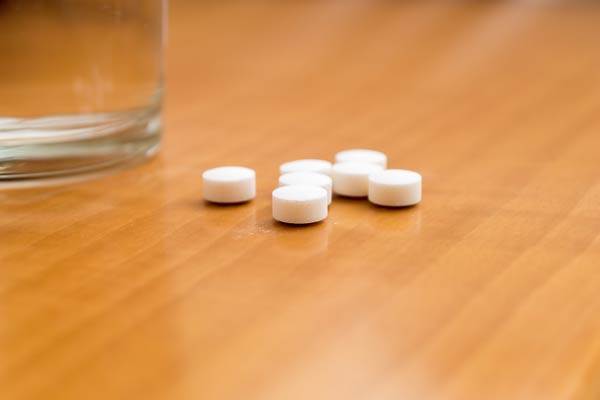The medication Suboxone is a two-part medication that helps a person who struggles with an addiction to opioids get and remain clean off of heroin, prescription pain killers, Fentanyl, and other types of opioid drugs. Opioid addiction also referred to as opioid use disorder, is very difficult to quit alone. All opioids will cause a person to become physically dependent and experience physical withdrawal symptoms as well as mental and emotional symptoms that are related to the disease of addiction generally. Opioid use disorder withdrawal symptoms cause a person to become physically sick when they do not use an opioid every day. Suboxone is formulated with buprenorphine, which is the ingredient that minimizes withdrawal symptoms. The withdrawal symptoms that opioid addiction causes include:
- Flu-like symptoms (sneezing, runny nose, fever, chills)
- Nausea vomiting and diarrhea
- Muscle and body aches
- Inability to eat or drink water
- Restless leg syndrome
- Insomnia
- Intense cravings for opioids
- Desperation and willingness to do anything to get more opioids
Since opioid addiction causes such severe withdrawals, many people who are addicted to opioids cannot stop using opioids because of how bad they suffer. Opioid withdrawal lasts from ten days up to two weeks and longer. Once a person does get through the detox symptoms, many people would think that this person is now free from their addiction, but that is rarely the case. The disease of addiction is extremely powerful. It is a disease of the mind and emotions that occur as a result of numerous influencers that affected the person negatively. 
Suboxone to Help With Opioid Addiction
The other ingredient of Suboxone is naloxone. Naloxone is an opioid antagonist that blocks the effects of opioids in the brain. Suppose a person were to use an opioid drug while on Suboxone, they would not feel the full effects of the drug that they took. In many cases, people on Suboxone cannot get high at all from opioid-based drugs unless they take extremely large and dangerous doses. This anti-high effect helps prevent opioid abuse. In addition to blocking the effects of opioid drugs, naloxone also can cause an adverse reaction and send a person into immediate opioid use disorder withdrawal syndrome if they use opioids while on Suboxone. The popularity and effectiveness of Suboxone helping chronic opioid addicts get a remain clean from opioids are undisputed. However, there are now more and more people remaining on Suboxone long term, and never actually becoming drug-free. These individuals may not be using the same drugs to get high and no longer exhibit all the behaviors of an active opioid-addicted person. However, they are still under the influence of a drug. The only way a person can overcome an addiction to any drugs or alcohol is to remain abstinent from all substances and receive expert treatment and counseling to help them learn how to stay drug-free.
Long-Term Suboxone Maintenance
The safest way to get off of Long-Term Suboxone Maintenance is to be cared for by a medical doctor who specializes in opioid addiction and Suboxone maintenance. For the best chance at success, receiving addiction recovery support along with the proper medication will help you safely taper off Suboxone and to prevent mixing other drugs. To suddenly stop taking Suboxone without professional guidance, it is incredibly likely that a relapse will occur. There is a distinction between addiction and drug dependency that relates to long-term Suboxone maintenance. Although all continuous ingestion of opioids will cause physical dependence, it does not always indicate addiction. If someone is on Suboxone versus heroin, they are taking responsibility for their addiction and making the right steps. Yet, their bodies are still dependent on the drug. If they were to stop suddenly, they would go into withdrawals and likely return to their opioid of choice. The National Institute on Drug Abuse states how physical dependency may not be an addiction, but it can prompt an addiction to occur or reoccur.
Physical dependence can happen with the chronic use of many drugs—including many prescription drugs, even if taken as instructed. Thus, physical dependence in and of itself does not constitute addiction, but it often accompanies addiction. (NIDA)
Stopping Suboxone maintenance too quickly can easily cause a person to reactivate their addictive mindset and get high to find relief from the withdrawal symptoms. At the same time remaining on Suboxone for too long can prevent a person from attaining authentic recovery from addiction. The best course of action that a person needs to take to get off Suboxone is to follow a taper schedule from a Suboxone-providing doctor that can be modified weekly if not daily.
Treatment for Getting Off Suboxone
A medical doctor or treatment center that specializes in opioid addiction will be able to help someone taper off Suboxone slowly enough to allow them enough time to adjust to becoming clean and sober. Without medical support as well as emotional and mental health care, persons on Suboxone will be reluctant to reduce their dose for fear of relapse due to withdrawal symptoms. Another problem with long-term Suboxone maintenance is the thwarting of real recovery from addiction. Someone who is under the influence even of a safe drug like Suboxone is still not sober, and they will need to attain abstinence to heal their emotions and recover. To get off Suboxone, it is essential to have medical supervision, a counselor, and or a South Florida treatment program to help someone overcome addiction to Suboxone and all other substances. Evoke Wellness Miramar offers multiple different detox programs that fit all drug addictions and their withdrawals.


